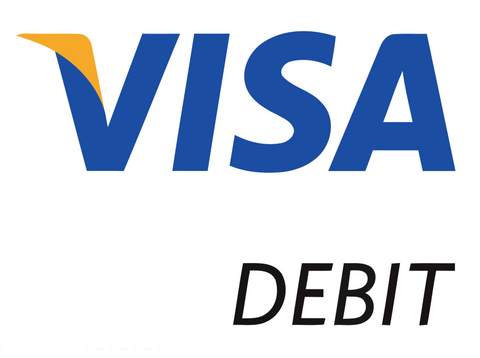Cannabis Made Clear
Cannabis and Sleep
Ever wondered how consuming cannabis and cannabinoids like THC and CBD affects your sleep? It’s not a simple answer.
Last updated November 20, 2024 | Published on November 20, 2024
Among all the Canadians who self-reported consuming cannabis for medical purposes in the 2023 Canadian Cannabis Survey, almost half said they’re using it as a sleep aid. But while some research suggests cannabis can help you fall asleep faster, other studies show it can mess with your dream cycles and disrupt sleep.
So does cannabis help or hurt your sleep? The answer depends on a few factors: how much you consume and how often, your overall health and the specific cannabis compounds you consume. Let’s take a closer look at the science behind cannabis and sleep.
How we sleep
You know what sleep is — ideally, it’s something you spend nearly a third of your life doing. But zoom in, and there’s a lot happening under the covers.
Your brain is busy
Your brain works hard to induce and maintain sleep. Your brain stem tells your muscles to relax, your thalamus sends the cortex the sensations that dreams are made of and your pineal gland produces and releases melatonin, the hormone that regulates your sleep-wake cycle. While you’re asleep, your brain is also flushing itself of toxins, and rewiring to process and retain new information.
Sleep stages
Your brain also conducts your journey through the various sleep cycles.
- Stage 1 non-REM (rapid eye movement) sleep is when you transition from wakefulness to slumber. During this state, brainwaves, breathing and eye movements slow down and your muscles relax.
- In stage 2 non-REM sleep, your body leans into the slowdown. Heartbeats and breaths get even further apart and, except for short bursts of electrical activity, brainwaves slow too.
- Stage 3 non-REM sleep, also known as deep sleep, is when your heart rate, breathing and brainwaves are slowest. If you don’t spend long enough in this essential stage, you may feel like you haven’t slept at all.
- Finally, REM sleep typically happens about 90 minutes into a sleep session and is when you dream. During this period, your arm and leg muscles are temporarily paralyzed while your eye movement, heart rate, breathing and brain activity increase.
Circadian rhythms and sleep drive
Your circadian rhythm — an internal, roughly 24-hour clock — also helps regulate your sleep-wake cycle, signalling when it’s time to feel tired and awake. Meanwhile, your sleep drive, or natural craving for sleep, gets stronger the longer you stay awake. These forces work together to ensure you get the rest you need.
Consequently, nearly every system in your body is involved in getting you to fall and stay asleep, and nearly every system suffers when you don’t get enough of it. Consistent lack of sleep can lead to a wide range of health issues, including impaired cognitive function, weakened immune response and increased risk of chronic diseases.
Cannabinoids and sleep
Now that you understand how your body and brain work in relation to sleep, let’s look at how cannabis ties into the process.
The endocannabinoid system (ECS) is the signalling system responsible for processing cannabinoids, such as THC, CBD, cannabinol (CBN) and cannabigerol (CBG). Its primary function is maintaining balance (a.k.a., homeostasis) in your body as it responds to challenges like disease, stress or injury. It also helps regulate several functions, including appetite, mood, inflammation and, yes, sleep.
You can think of the ECS as a thermostat for your body, responsible for keeping you comfortable.
How the endocannabinoid system impacts sleep
The ECS helps regulate your sleep-wake cycle, a circadian rhythm. Like the ECS, circadian rhythms influence several bodily processes and are impacted by environmental factors such as food intake, exercise, light, darkness, social interactions and many more.
These environmental factors, or cues, are known as zeitgebers, a German word that means “time givers.” Research suggests that cannabinoids are zeitgebers that, in accordance with the ECS, can influence circadian rhythms like the sleep-wake cycle.
Exactly what influence they have is up for debate, and investigations into the relationship between cannabinoids and circadian rhythms have produced complex and often contradictory findings. Depending on the study — and a range of other factors, including the type of cannabis, dose, timing and frequency of use, as well as individual biological differences — cannabinoid use may improve your sleep quality or diminish it.
Will THC help me sleep?
Arguably the best-known and best-studied cannabinoid, THC is the compound responsible for a contradictory set of potential effects, including paranoia, panic, anxiety and relaxation, euphoria and sleepiness.
Like all studies on cannabis and sleep, research into THC and sleep is complicated by the same variables, including type of cannabis, dose and individual factors. Plus, many of the conditions that may improve sleep, such as controlling pain and anxiety, can be influenced by THC. Differences in these variables and study methodologies can produce various outcomes. However, the following findings are relatively consistent across studies.
- Short-term use of THC probably makes falling asleep faster. A large review conducted in 2023 found that short-term use of THC reduces the time it takes to fall asleep.
- Short-term use of THC is associated with an increase in deep sleep, while regular use is associated with a decrease. Also known as stage 3 non-REM sleep or slow-wave sleep, deep sleep is an essential period that’s necessary for feeling refreshed.
- Consuming THC may reduce the time you spend dreaming. Some people may perceive less time in dream-inducing REM sleep as beneficial — especially those who have post-traumatic stress disorder or are prone to nightmares. But less REM sleep can mean more trouble processing emotions and consolidating memories.
- Lower THC doses may encourage sleep in the short-term, while higher doses may discourage it. Dosage appears to be particularly important: Smaller amounts of THC are more likely to promote quality sleep and higher doses of THC more likely to disrupt it.
Will CBD help me sleep?
Again, the findings are contradictory — when it comes to sleep and the cannabinoid CBD, studies have found the results depend on how much is consumed, as well as its influence on other conditions related to poor sleep, such as pain and anxiety.
- Lower doses of CBD may prevent sleep. A 2022 article in the Canadian Pharmacists Journal concluded that lower doses of CBD can be stimulating.
- Higher doses of CBD may promote sleep. The same journal article found that consuming higher doses of CBD may increase overall sleep time and reduce sleep disruptions.
CBN and sleep
The minor cannabinoid CBN is essentially degraded THC, produced as THC oxidizes, or is exposed to air. You’ll find it in a range of products marketed with terms like “bedtime,” “sleep,” “slumber” or “nighttime,” but its effectiveness as a sleep aid remains to be seen. A 2023 clinical trial showed promising results, with CBN alone (without the addition of CBD) reducing nighttime awakenings and sleep disturbances. Still, larger-scale studies are necessary to validate these findings.
Cannabis and sleep disorders
Based on currently available information, it’s hard to tell whether or how much cannabis can help people with sleep disorders such as insomnia.
A 2021 study showed a combination THC, CBN and CBD extract taken every night for two weeks improved symptoms and sleep quality for those with chronic insomnia disorder (characterized by having difficulty falling or staying asleep at least three nights a week for at least three months). However, long-term use of cannabis may negatively influence sleep.
What we do know is that cannabis seems to help those living with insomnia or poor sleep quality in addition to other conditions. For instance, both THC and CBD tend to produce better sleep outcomes in people who have fibromyalgia and multiple sclerosis. It’s unclear whether this is because the cannabinoids act directly on the mechanisms of sleep or because they help minimize pain and anxiety that may otherwise disrupt it.
What’s the verdict on cannabis and sleep?
There’s not a lot of consistent, comprehensive research on cannabis and sleep. While cannabis consumption may offer benefits in the short-term when used for sleep alone, the evidence for the benefits of long-term use is not currently strong enough. But for now, we can reasonably make these conclusions.
- Dose matters. Lower THC doses and higher CBD doses are associated with better sleep outcomes, while higher THC and lower CBD doses are associated with worse ones.
- Frequency matters. In most people, frequent cannabis consumption is associated with worse sleep outcomes than infrequent use.
- Health matters. Researchers have observed that THC and CBD consumption produced better sleep outcomes in people with certain chronic pain conditions than in people without them.








